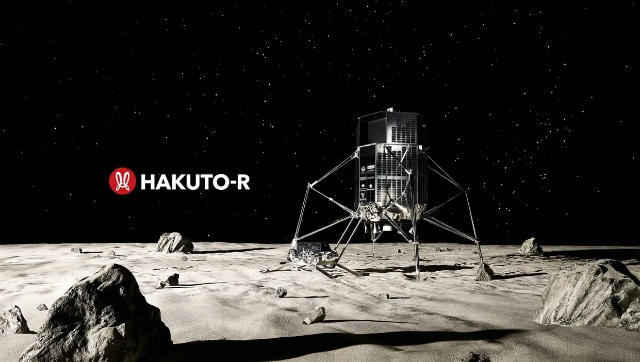Mehul Reuben DasNov 02, 2022 15:54:49 IST
The race to be the first one in space, and then the Moon was a contest between mainly the USA and the Soviet Union. Today though, the race to be the first one to completely commercialise space travel and make it feasible for tourists is practically anybody’s race, including private players.
Thanks to a Japanese aeronautical research company, people on Earth can now send parcels and couriers to space. Image Credit: ISpace.
We have heard about space agencies and aeronautical firms partnering up to make the world’s first space hotel. Now, we have an up-and-coming startup from Japan that wants to establish a courier service in space. Want to send a parcel or an urgent document to someone in space? Well, in a few years, you can.
ISpace Inc., a Tokyo-based company, plans to launch a lunar lander by the end of this month, that will carry a variety of commercial and governmental payloads, including 2 rovers.
The goal of this firm is to establish a human population on the moon by 2040, but before then it wants to transform one of its modules on the moon as a courier and logistical lunar hub. The aim is to make money by transporting commercial products and research equipment up in space, on behalf of research institutes, private players, and certain government agencies.
ISpace’s first trip will test both the technological capabilities it has developed since its creation in 2010 and the trust of its investors. The Japan Times reported that a lot depends on its success, including the possibility of an IPO as early as this fiscal year and a chance to take a larger piece of space tourism and commercial logistics industry, which, Morgan Stanley predicts would triple to $1 trillion in two decades from 2020.
The mission that ISpace Inc., is a part of is called the Hakuto-R lunar exploration programme, which, essentially means “white rabbit” in Japanese, and includes a moon lander mission from the Japanese space and research agency. ISpace plans on launching at least 10 different missions to the moon before they can start construction of their “sorting hub.”
One of the biggest costs for private players like ISpace has been the fuel costs associated with a flight to the moon. Space crafts burn up a lot of fuel when taking off, and when landing on the moon’s surface. ISpace claims that they have a new way to land on the moon which would significantly reduce the fuel consumed while landing on the moon. This new system uses the moon’s gravity for propulsion.
The startup claims that by using the moon’s gravity as propulsion, fuel costs can be decreased. The success of ISpace’s mission will also be important for Japan’s own space programme as the moon once again becomes the centre of global interest.
The launch will take place from Cape Canaveral in Florida, and will use a Falcon 9 rocket constructed by Elon Musk’s SpaceX.
Source by www.firstpost.com



















